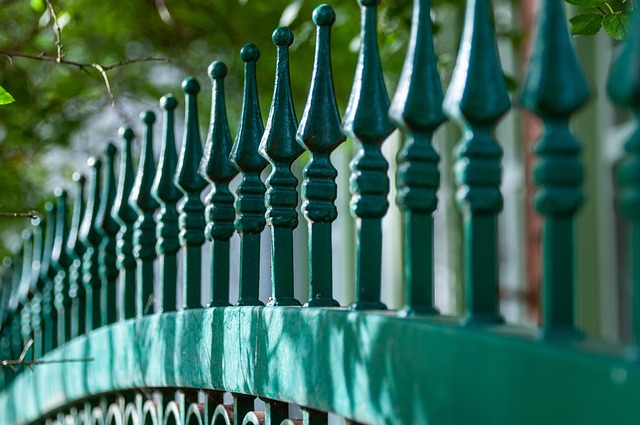In New Bedford, Massachusetts, the pursuit of sustainable living extends beyond urban centers, with eco-friendly fencing materials gaining traction among residents aiming to minimize their environmental footprint. This article explores the diverse range of ecological fencing options available in the region, highlighting their benefits and unique features. From recycled plastic to organic wood and innovative plant-based composites, we delve into how these materials not only enhance outdoor spaces but also contribute to a greener New Bedford.
- Eco-Friendly Fencing Options in New Bedford
- Benefits of Sustainable Fencing Materials
- Material Comparisons: Traditional vs. Eco-Conscious
- Installation and Maintenance Considerations
- Local Availability and Suppliers in MA
Eco-Friendly Fencing Options in New Bedford
New Bedford, MA, residents now have a growing array of eco-friendly fencing options to choose from, aligning with the city’s commitment to sustainability and environmental preservation. Beyond traditional materials like wood and vinyl, local suppliers offer innovative alternatives that not only reduce environmental impact but also enhance the aesthetic appeal of outdoor spaces.
Among these are natural fibers such as bamboo, hemp, and recycled plastic blends, which are not only durable but also biodegradable or easily recyclable. These materials are often installed using hidden fasteners or staples, eliminating the need for chemical-based treatments or harmful adhesives. Additionally, local companies specialize in metal fencing made from recycled content, featuring sleek designs that can complement various architectural styles while promoting a circular economy.
Benefits of Sustainable Fencing Materials
In an era where environmental sustainability is at the forefront of many initiatives, choosing eco-friendly fencing materials offers numerous advantages for New Bedford residents and local ecosystems alike. One of the primary benefits is the significant reduction in environmental impact. Traditional fencing often involves the use of synthetic plastics or wood treated with chemicals, which can leach into the soil and water, causing harm to nearby plants and animals. In contrast, sustainable fencing materials are made from renewable resources like bamboo, recycled plastic, or organic plant fibers. These alternatives not only minimize pollution but also support the growth of a greener, more vibrant local environment.
Moreover, sustainable fencing provides long-term cost savings. While initial installation costs might be higher than conventional options, these materials are known for their durability and longevity. They are resistant to rot, rust, and pest damage, reducing the need for frequent repairs or replacements. This durability translates into a lower overall cost of ownership over time, making eco-friendly fencing a practical and responsible choice for New Bedford’s residents seeking both beauty and sustainability in their outdoor spaces.
Material Comparisons: Traditional vs. Eco-Conscious
In New Bedford, MA, the choice of fencing materials offers a significant opportunity for environmentally conscious residents and businesses to make sustainable decisions. Traditional fencing options often rely on non-biodegradable plastics or wood treated with chemicals, contributing to pollution and environmental degradation. In contrast, eco-conscious fencing materials are emerging as a more responsible alternative. These include recycled plastic, bamboo, and natural fibers like hemp or sisal.
Recycled plastic fences, for instance, utilize post-consumer waste, reducing the demand for new plastic production and diverting materials from landfills. Bamboo, known for its rapid growth and strength, provides a renewable resource that is both durable and aesthetically pleasing. Natural fiber fences, such as hemp and sisal, offer excellent insulation properties and are completely biodegradable, making them an ideal choice for those seeking to minimize their ecological footprint. By choosing eco-friendly fencing materials, New Bedford residents can contribute to a greener environment while enhancing the beauty and longevity of their outdoor spaces.
Installation and Maintenance Considerations
When considering eco-friendly fencing materials, it’s essential to factor in installation and maintenance practices for a sustainable solution. Many natural barriers require minimal assembly, reducing labor and material waste during installation. For instance, bamboo or wooden fences can be easily erected with simple tools and hardware, minimizing the carbon footprint of construction.
Regular upkeep is another vital aspect. Some organic materials like plant-based composites might need more frequent cleaning to maintain their aesthetics. Proper maintenance ensures the longevity of these fencing options while preserving their environmental benefits. Additionally, local guidelines and regulations regarding fence installation should be considered, ensuring compliance and minimizing any ecological impact.
Local Availability and Suppliers in MA
In New Bedford, Massachusetts, homeowners and businesses have access to a growing array of eco-friendly fencing materials supplied by local companies committed to sustainability. Many Massachusetts suppliers specialize in recycled plastic, bamboo, and natural wood options sourced responsibly from nearby forests. This availability not only reduces transportation emissions but also supports the state’s thriving green economy. From rustic cedar to sleek composite designs, these locally sourced materials offer both beauty and environmental responsibility.
